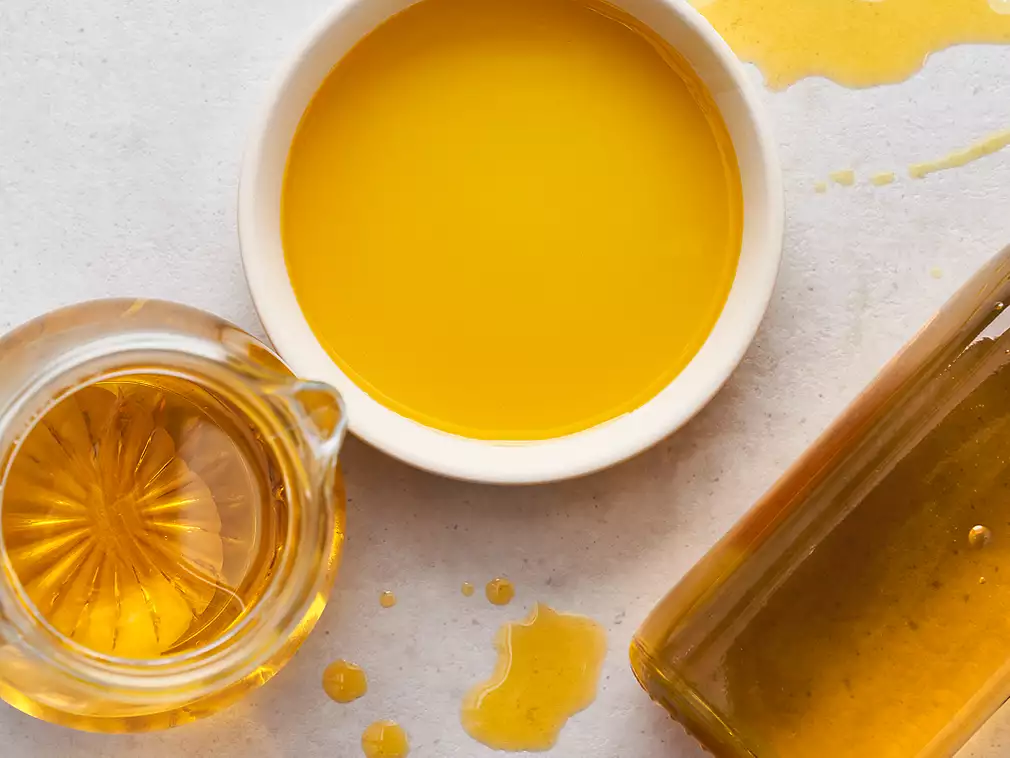Bulgarian processors are facing a shortage of raw materials and competition from Ukrainian sunflower oil on the European market. Because of this, the Association of Vegetable Oil Producers is discussing the possibility of restricting the export of sunseed and rapeseed, the association’s chairman Yani Yanev told the national radio station Focus.
“Drought has seriously affected sunflower yields over the past two years. The restrictions imposed on the export of oilseeds from all producing countries, the inability to provide sufficient raw materials to load our capacities and produce products at competitive prices, are forcing our processors to stop for long periods until they secure raw materials,” Yanev explained.
According to him, Bulgarian enterprises are determined to work for export, because in the past they successfully competed with the largest sunflower seeds processors from other countries. However, this is currently impossible due to the lack of raw materials.
“Larger processors are trying to switch to other oilseeds, but we still lost markets. We face strong competition from Ukraine, which imports about 2.2 million tons of unrefined sunflower oil and another 200 thousand tons of refined oil to the European market, including to Bulgaria,” says Yani Yanev.
He believes that the situation can be improved by limiting the export of raw materials — sunseed and rapeseed — and stimulating the export of processed products.


October 24, 2025 - Global agricultural commodity markets are currently navigating a tumultuous landscape, marked by significant price volatility and divergent trends across key crops. As of October 2025, a complex interplay of extreme weather events, escalating geopolitical tensions, persistent supply chain disruptions, and evolving demand patterns is dictating the rhythm of the market. While some forecasts point to a general softening of overall agricultural prices, the reality on the ground shows a mixed bag, with certain staples experiencing downward pressure while others surge due to acute vulnerabilities. This intricate web of factors is creating an environment of profound uncertainty for producers, consumers, and investors alike, reshaping the global food economy.
The immediate implications are far-reaching, translating into fluctuating food costs for consumers, unpredictable revenue streams for farmers, and strategic challenges for food processors and retailers. The absence of critical market data due to a recent US government shutdown, which suspended the USDA's monthly World Agricultural Supply and Demand Estimates Report, further exacerbates this uncertainty, leaving market participants without crucial transparency in grain and oilseed sectors. This data void, coupled with the ongoing external pressures, sets the stage for continued market turbulence in the months ahead.
The National Oilseed Processors Association (NOPA) of Kazakhstan and Uzbekistan’s Fayz Oil Imports have signed a memorandum of cooperation, Kazinform News Agency reports citing the press service of the Kazakh Agriculture Ministry.
According to the document, which was signed in Tashkent, Fayz Oil Imports is set to purchase oil and fat products from Kazakhstani processing enterprises – NOPA members – to the amount of $60 million.
Uzbekistan is among the TOP-5 importers of Kazakhstan's oil and fat products.
In 2024-2025, the volume of supplies of vegetable oils and high-protein feed (meal and cake) from Kazakhstan to Uzbekistan made $349 million, which is 82$ more than in the previous season.
"Kazakhstan has solidified its role as a leading exporter of vegetable oils and processed oilseed products to Central Asia, emerging as the primary supplier to Uzbekistan and Tajikistan.
The share of Kazakh vegetable oil in the Uzbek market reached 65% (13% in 2017), 74% in Tajikistan (15% in 2017).
Additionally, Kazakhstan fully supplies the region's countries with sunflower meal and cake, the key ingredients in the production of poultry and livestock feed.

Improved weather conditions in Ukraine allowed for an increase in sunflower seeds harvest rates last week, slightly alleviating concerns among processors about seed volumes and quality. At the same time, purchase prices remained high due to strong demand for sunflower oil.
As of October 16, 7.19 million tons of sunflower were harvested from 76% of the area (+10% per week) or 3.91 million hectares in Ukraine, with an average yield of 1.84 tons/hectare, while last year on this date, 9.3 million tons of sunflower were harvested from 91% of the area, with a yield of 2.07 tons/hectare.
Dry, albeit cool, weather this week will help complete the sunflower and soybean harvest, but producers are reporting lower yields. At the same time, sunflower quality in the west is better than previously expected.
The sunflower seeds harvest in Ukraine is forecast at 10-10.5 million tons compared to 11 million tons last season, so processors are actively buying up all the proposed volumes in order to load production for the maximum period.
Over the week, the demand prices for sunseed in Ukraine increased by another 300-500 UAH/t to 27,800-28,800 UAH/t or $590-610/t excluding VAT (for 50% oil content) with delivery to the factory, but at the same time, some processors lowered the price and stopped accepting due to the lack of free warehouses, while others continue to buy and raise prices.
Against the backdrop of delayed deliveries, spot demand prices for sunflower oil in Ukraine increased by another $20-30/t to $1,230-1,245/t with delivery to ports in October-November, as prices for Russian oil increased by $10-20/t to $1,200-1,210/t FOB per week.
Bulgarian sunflower oil producers find themselves in a paradoxical situation: despite stable retail prices, they are forced to sell their products at a loss. This was stated by Yani Yanev, Chairman of the Association of Vegetable Oil Producers.
Statistics show surprising consistency: over five years, the price of sunflower oil has fluctuated only between 5 and 10 stotinki. “In August 2021, the wholesale price was 3.15 leva, in 2023 – 2.80 leva, in 2024 – 2.79 leva, and now it’s back to 3.15 leva,” Yanev stated. Against this backdrop, other food products have risen in price by 30-70%.
However, according to the expert, this stability doesn’t reflect the real situation. Producers are facing a sharp increase in raw material and processing costs, making their business unprofitable.
The main problem facing the Bulgarian industry is a severe shortage of raw materials despite significant production capacity. Droughts in recent years have reduced the sunflower harvest, and oilseed export bans in producing countries have limited imports.
As a reminder, Bulgaria harvested its lowest oilseed crop in the last ten years in the 2024/25 season due to extremely hot and dry summer conditions.
“We have created capacity to process 4 million tons of sunflower seeds, but this year we produced only 1.6 million tons of oil,” explains Yanev. Bulgarian companies are forced to shut down for extended periods due to a shortage of raw materials, losing competitiveness in foreign markets.


According to a recent forecast from Oil World (Germany), the world will face record demand for vegetable oils in 2025/26. Global imports of eight main types of oils could increase by 3.1 million tons, reaching 94.5 million tons.
The main market driver is a sharp increase in global vegetable oil consumption by 6.1 million tons per year. This figure is more than double last season’s increase. Countries such as the United States, Indonesia, and Brazil, where domestic demand from the biodiesel industry is particularly strong, are playing a key role.
However, analysts note that satisfying this demand will be difficult. Limited supply is projected to pose a serious challenge to global trade. The situation is further exacerbated by a sharp decline in global soybean oil reserves. Experts cite US energy policy as a key factor.
“Thanks to the government’s biofuel development program and support for domestic raw materials, US soybean oil consumption could soar by 2 million tons next season,” the report notes. “This not only depletes reserves but will also force the US to significantly reduce imports, reducing their position as a major buyer.”
In light of these events, a significant redistribution of power among supplier countries is also looming. Combined vegetable oil exports from traditional giants—India, Argentina, Brazil, and the US—are projected to decline by 2.2 million tons.
This will increase the global market’s dependence on alternative sources, pushing exporters such as Russia, Ukraine, Malaysia, and Canada to the forefront, the agency notes.
The 2025 World Food Forum (WFF) concluded at the headquarters of the Food and Agriculture Organization of the United Nations (FAO) in Rome with renewed global commitment to transform agrifood systems through solidarity, science, and investment.
This year’s Forum coincided with the celebration of a historic World Food Day marking FAO’s 80th anniversary. The event brought together global leaders, policymakers, youth, Indigenous Peoples, scientists, farmers, investors, and innovators under a shared goal — to build sustainable, hunger-free agrifood systems.
Held under the theme “Hand in Hand for Better Foods and a Better Future,” the Forum hosted over 300 events, drawing 16,500 in-person participants and more than 60,000 online attendees from nearly 200 countries. Through social media, it reached 1.5 billion people and generated 1.6 million engagements.
The Hand-in-Hand Investment Forum showcased opportunities worth $17.2 billion, with 31 countries and six regional initiatives sharing plans expected to transform the lives of 160 million beneficiaries.
FAO Director-General Qu Dongyu hailed the Forum as a transformative global movement “with purpose, driven by people, and guided by the conviction that food is the foundation of our shared future.” He urged participants to sustain the momentum beyond the event, saying, “Take the inspiration you felt and transform it into progress.”
Rosângela Lula da Silva, First Lady of the Federative Republic of Brazil and COP30 Special Envoy for Women, highlighted the central role of youth in agrifood transformation. She emphasized the importance of uniting young people, communities, and governments “to ensure food security and uphold the right to food for all.”

Okinawa Institute of Science and Technology Graduate University
From the fields of Okinawa to the greenhouses of Spain and Cyprus, a new cross-border initiative is shaping the future of agriculture through innovation and international cooperation.
In March 2025, OIST Innovation launched a trilateral project connecting Okinawa (Japan), Spain, and Cyprus. This initiative, Supporting the Demonstration of Sustainable Digital Solutions for Agriculture, supported by the CONCERT-Japan program, aims to strengthen collaboration between universities and innovation hubs working in digital agriculture. The project focuses on supporting agritech startups and building international testbeds for real-world technology deployment.
Just a few months since its launch, the project is already showing promising results.
A digital agricultural revolution
The Food and Agriculture Organization of the United Nations estimates that, given global population growth, agricultural demand will increase by at least 50% by 2050. To achieve global food security, innovators are turning to technology to improve the efficiency of agriculture. Whether it's precision sensing to ensure soil health, smart irrigation systems or networked farm machinery, digital technologies have the potential to change the face of agriculture. This new cross-border initiative aims to support the developing agritech sector and contribute towards a sustainable food future.